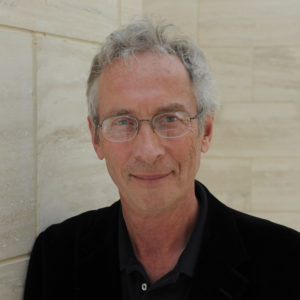by Buck Institute
April 17, 2019 . Press Release
Buck Professor Emeritus David Nicholls elected to the Royal Society
 David Nicholls, PhD, FRSE, has been elected to the Royal Society, a self-governing Fellowship made up of the most eminent scientists, engineers and technologists from the United Kingdom and the Commonwealth. Nicholls joined the Buck Institute in 2000, establishing the mitochondrial physiology laboratory. His research, over more than 50 years, has focused on the mitochondrion, the powerhouse of the cell and the focus of much current research on aging. He has published more than 300 scientific papers that have been cited by other scientists more than 33,000 times.
David Nicholls, PhD, FRSE, has been elected to the Royal Society, a self-governing Fellowship made up of the most eminent scientists, engineers and technologists from the United Kingdom and the Commonwealth. Nicholls joined the Buck Institute in 2000, establishing the mitochondrial physiology laboratory. His research, over more than 50 years, has focused on the mitochondrion, the powerhouse of the cell and the focus of much current research on aging. He has published more than 300 scientific papers that have been cited by other scientists more than 33,000 times.
“We congratulate David on this significant and well-deserved honor,” said Eric Verdin, MD, Buck Institute President and CEO. “David was instrumental in establishing a baseline of scientific excellence when the joined the Buck and he was vital in supporting our collaborative environment. We are fortunate that he continues to work with us during his retirement.”
Nicholls is perhaps best known for his work on brown fat, solving the mechanism by which this tissue produces heat via a novel protein, UCP1. He also co-wrote four editions of the Bioenergetics textbook, introducing the mitochondrial field to generations of scientists. In addition, he has developed numerous techniques to measure mitochondrial function in cells, and their dysfunction in age-related disease such as type 2 diabetes and stroke.
Nicholls officially retired in 2016, but continues to be active as Professor Emeritus, collaborating with groups studying diabetes. When at the Institute, he works in the lab now directed by Professor Martin Brand. He sees his main current role as an educator, running mitochondrial “master classes, often together with Brand, and using his half-century experience in mitochondrial bioenergetics to argue in reviews for greater quality control in the more than 15,000 annual publications dealing with aspects of mitochondrial physiology in health, aging and disease. He was elected a Fellow of the Royal Society of Edinburgh in 1999 and was awarded the Mitchell Memorial Medal by the European Bioenergetics Congress in 2008.
Fellows and Foreign Members of the Royal Society are elected for life through a peer review process on the basis of excellence in science. There are approximately 1,600 Fellows and Foreign Members, including around 80 Nobel Laureates. Each year up to 52 Fellows and Foreign Members are elected from a group of around 700 candidates who are proposed by the existing Fellowship.
Science is showing that while chronological aging is inevitable, biological aging is malleable. There's a part of it that you can fight, and we are getting closer and closer to winning that fight.
Eric Verdin, MD, Buck Institute President and CEO